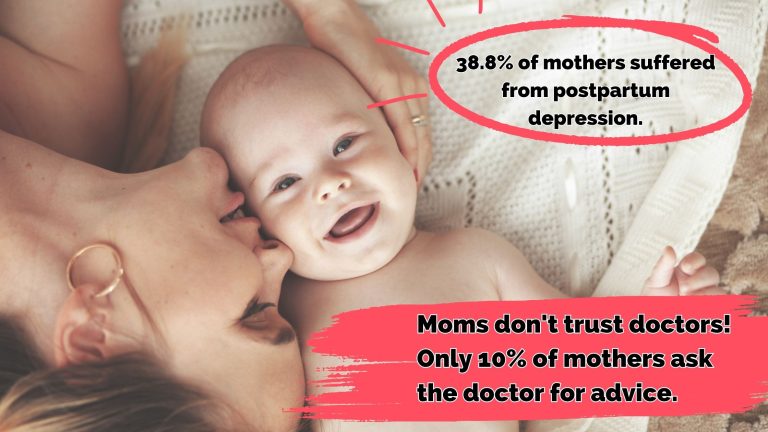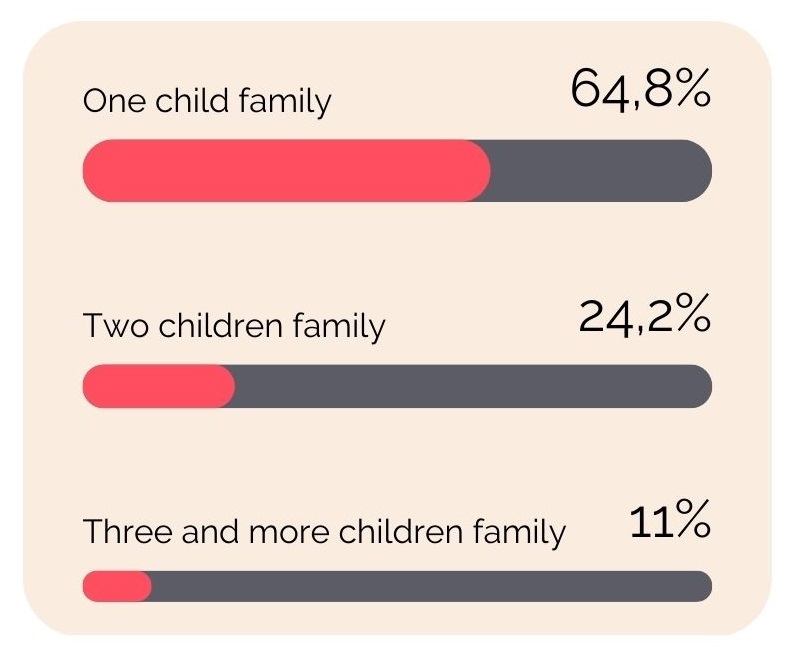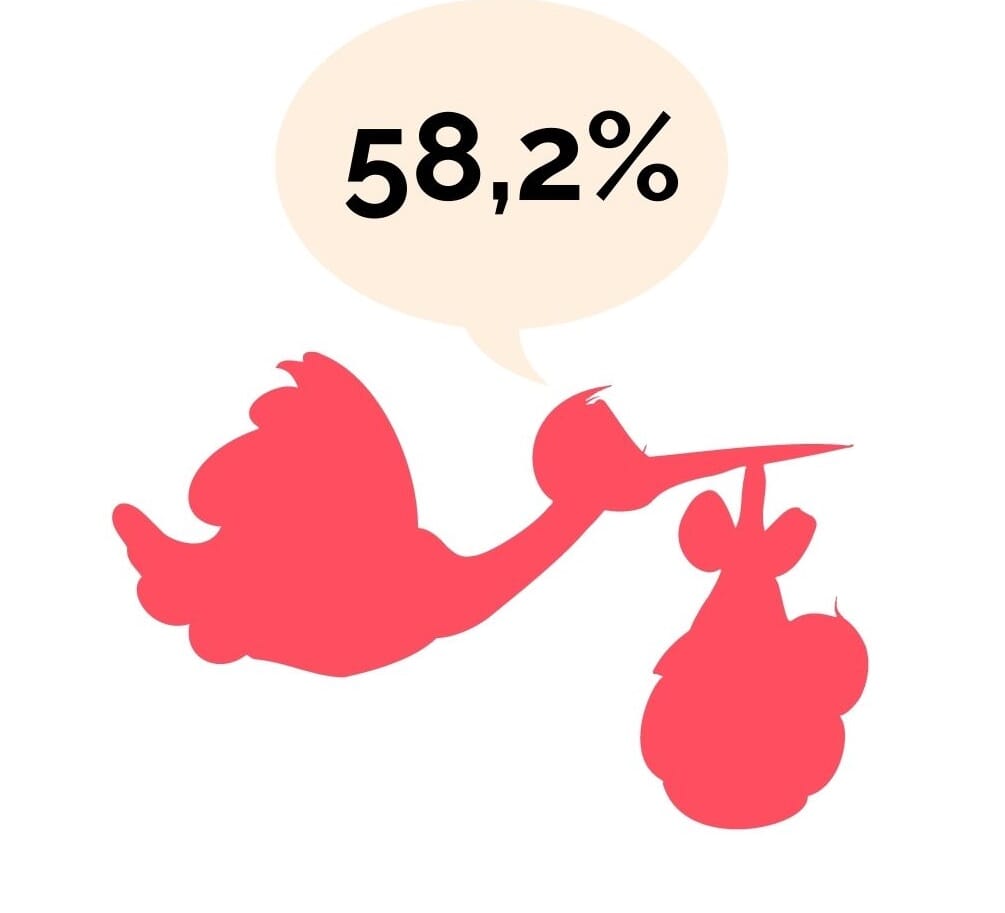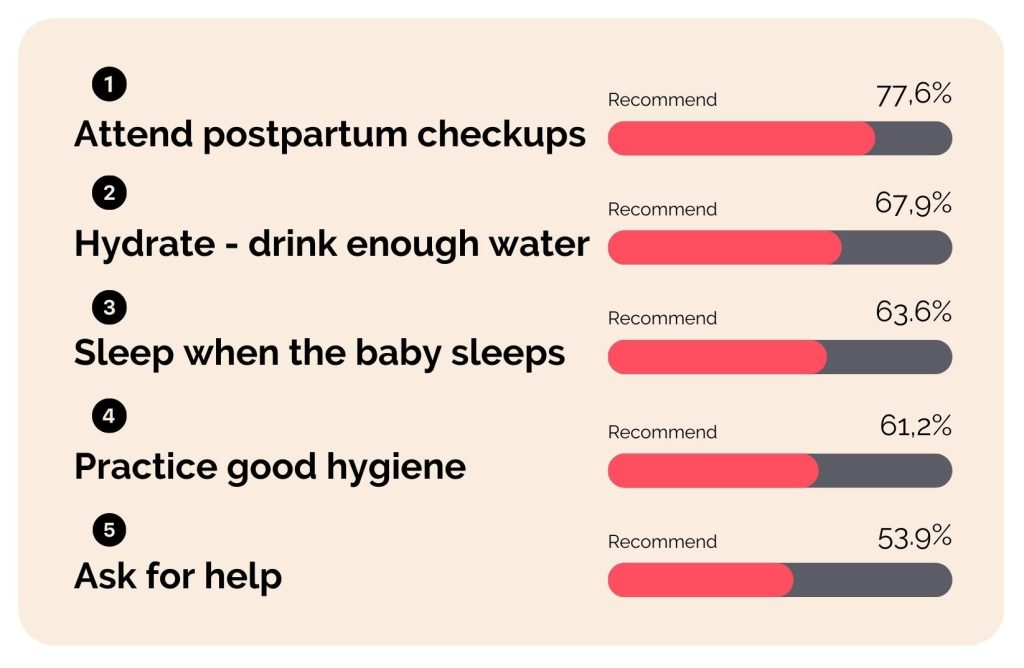
The Transformative Power of Newborn: How Being a Mom Changes You
- Created:
17. 3. 2023 - Updated:
26. 7. 2023
It’s a fact:
A newborn baby brings a big change in every woman’s life and can affect many aspects of her daily life.
Hence:
We conducted a survey to find out how a newborn baby affects women’s lives and what are the most common impacts on different areas of life.
In this article:
We will present the results of our survey and analyze what are the main challenges and changes for women after the arrival of a new member in the family.
Mothers Reveal: How Being a Mom Changes You?
The arrival of a newborn affects a woman’s life in many ways. Changes affect not only physical health and psychological well-being but also daily activities, relationships with partners and family, work and social life. All of these aspects are analyzed in detail in our research to understand better how newborn changes a woman’s life.
Methodology
This survey was conducted among moms from all over the world. A total of 165 participants provided valid responses in March 2023.
The survey consisted of 18 questions covering seven areas:
- Demographics
- Number of children & type of birth
- Seeking advice and help
- Self-care after childbirth
- Changes in relationship with partner
- How to manage sleep
- Baby gear – what you really need
This article aims to prepare future moms for the new changes in their lives. And also to help new mums cope with the changes – you’re not alone in this.
One and Done: The Rise of One-Child Families

Our research revealed that 64.8% of respondents have only one child.
Several factors contribute to the trend of increasing numbers of one-child families.
Some of these factors include the rising cost of raising and caring for children, the reduction in the number of large families and the increasing employment rate of mothers.
It is also becoming more common for people to choose to have children later in life, which may mean that families want to have only one child to plan their lives better and give full attention to raising a child.
From Pain to Power: The Predominant Type of Birth
The most common type of childbirth is natural vaginal birth, which represents up to 58.2% of all births by mothers in our questionnaire.
Most pregnant women can give birth naturally without major problems.

But in some cases, assisted birth with the help of, for example, a vacuum or forceps may be necessary. This type of birth was used by 10.9% of the mothers interviewed.
Caesarean section, a surgical procedure, accounts for about 29.7% of all births in the survey.
No Shame: Seeking Advice
In need of child advice, where do mothers turn?
According to the survey, mothers have the greatest trust in the family – more than three-quarters of respondents (85.5%) turn to family for advice about their newborn. Doctors belong to the “Other” group, with a trust level of less than 10%.

Postpartum Care For Mothers’ Bodies
Postpartum care of the mother’s body is important for recovery. Our survey also shows that 99% of mothers cared for themselves as best as possible after giving birth.
Whether it’s basic things like practising good hygiene, seeing a doctor or dealing with the problem immediately. Or things we take for granted, like drinking enough water, eating a healthy diet and getting adequate exercise.
There are also those moms who unfortunately don’t make themselves a priority and don’t take care of their bodies at all after birth. Although self-care after childbirth is very important and recommended by doctors, one mother out of 165 reported that she did not take enough care of herself after childbirth.
Let’s look at the main self-care tips that moms after childbirth recommend practising most often:
- 77.6% of mothers recommend attending postpartum checkups
- 67.9% of moms recommend drinking enough water
- 63.6% of moms recommend sleeping when the baby sleeps
- 61.2% of moms recommend practising good hygiene

last but not least
- 53.9% of mothers recommend not being ashamed to ask for help
Breaking the Stigma: Let’s Talk About Postpartum Depression
In our survey, we did not hesitate to ask the most sensitive question of every mother – did you suffer from postpartum depression?
Mothers were not afraid to reveal the truth and proved that this topic should be discussed. Of the women asked, 38.8% suffered from postpartum depression.
From shame to strength – Let’s see how our amazing women cope with postpartum depression.
In the case of postpartum depression, women tended to turn to their partners. 62.7% of respondents turned to their partners with their problems. The family did not play such a big role in this case. Only 1 woman out of 165 shared her problem of postpartum depression with her family.
43 women out of 165 talked to the healthcare providers, that’s less than 50% of the women interviewed.
However, women with postpartum depression realized that they needed to take time for themselves and start caring for themselves – 47.2% of the women surveyed had started practising self-care.

From Lovers to Parents: How Having a Baby Changes Relationship with Partner
Many changes can occur in a partnership when a child is born.
However, a quarter of respondents – 40% of mothers – said that the birth of a baby and the associated change had no effect on their relationship with their partner.
Some partners find that they feel closer to each other.
Our survey showed more positive changes in the partnership after the child’s birth. Specifically, communication and openness improved for 25% of respondents.
While others may feel tension, stress and distance.
Three areas of the relationship that have been negatively affected by the birth of a child are intimacy (sexual activity), stress and distribution of tasks – these areas have worsened in relationships for 35% of respondents.

The Science of Sleep: Mothers Reveal the Truth
72% of mothers with newborns suffer from sleep deprivation at least one night a week, according to a survey conducted by the American Academy of Pediatrics.
Coping with sleep for mothers who have just given birth and their newborn babies can be challenging and exhausting.
That’s why in our survey, we asked mothers two questions that every mom wants to know the answer to:
1. What to do to make the baby sleep through the night?
2. How to manage your own sleep needs as a new mom?
And the moms revealed their secrets to us!
- 58.8% of moms recommend sleeping when the baby sleeps.
- 49.7% of moms recommend establishing a baby bedtime routine.
- 39.4% of mothers take turns caring for their baby with their partner.

It is also important not to be afraid to ask for help. Only 37.6% of mothers ask for help in case of exhaustion. This is a very small percentage compared to the other – 62.4% of mothers simply do not ask for help, family or friends.
But the most important thing is not to go crazy and not to take everything seriously. One mom responded to our questionnaire:
“I just took it as it came. My 1st baby slept through from 3 weeks old. My 2nd baby did two 4-hour sleep per night, so sleep deprivation was only an issue in the first few weeks.“
Tried and Tested: Baby Gear That Real Moms Swear By
Regarding baby gear, it is very likely for parents to feel overwhelmed.
Especially then if they are listening to the advice of everyone around them, reading blog articles and books, or taking advice from support groups. The need to buy all the unnecessary stuff is on top.
However, in our survey, mothers told us which baby gear they used and which they did not use at all.
Which Baby Products Did Parents Really Use?
The percentage tells how many mothers interviewed actually use the product:

Conclusion
By conducting this survey, we sought to gather different perspectives and experiences of mothers and their children to understand them better.
The survey results are helpful in showing how different women have different experiences regarding babies. These experiences are shaped by each woman’s unique views, partnerships and family relationships.
Uncovering mothers’ childbirth experiences and postpartum changes is not an easy task. It is a complex and sensitive topic, and mothers’ opinions vary. Even though they may seem the same at the core.
Thus, we want to focus on providing information about childbirth, how relationships change for the woman herself after childbirth and how relationships change for partners as a result of the new baby.
We want to pass on these experiences to mothers-to-be to help them prepare for the changes after childbirth. Our aim is to show the current mothers that they are not alone in this situation.
FAQ: How Being a Mom Changes You
Motherhood can change a woman on many levels.
Physically, a woman’s body adjusts for childbirth and breastfeeding, including weight changes, breast shape, hormone levels, and more.
Psychologically, motherhood can bring a new level of love, care and responsibility, leading to a change in priorities, future planning and overall perspective on the world. Women can also gain new skills and abilities, such as multitasking, organisation and communication.
After giving birth, a woman’s face does not necessarily change.
However, during childbirth, a woman may experience various emotions and stressful situations that may appear on her face in the form of tension, fatigue, etc.
In addition, changes caused by hormonal changes, such as acne or dark spots, may be visible.
However, these symptoms usually gradually disappear, and the usual appearance of the face returns.
First-time mother syndrome occurs in women who become mothers for the first time and may experience anxiety, stress, insecurity and feelings of isolation.
These feelings can be caused by sudden changes in their lives and the new challenges associated with motherhood, such as new responsibilities, childcare and sleep deprivation.
Being a mother is important for many reasons.
Mothers provide basic care and education for their children and contribute to their growth and development.
Mothers also play an important role in shaping the identity and values of their children and creating a family environment that promotes emotional and psychological stability and well-being.
Being a mother also brings many challenges and opportunities to learn new skills, improve communication, and increase self-awareness and self-esteem.
Last but not least, motherhood brings the deepest and most powerful form of love that can bring untold joy and fulfilment into a mother’s and her children’s lives.






